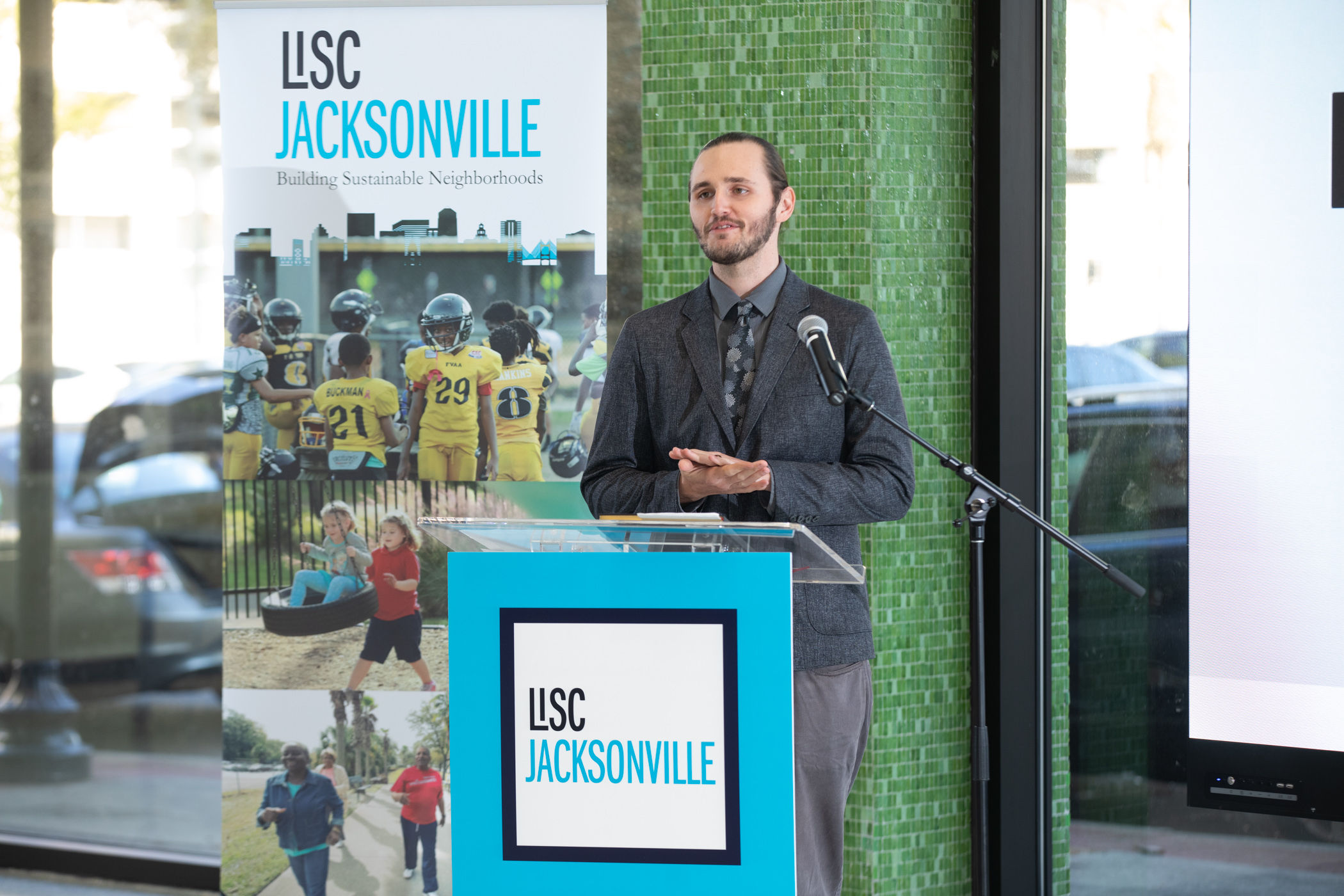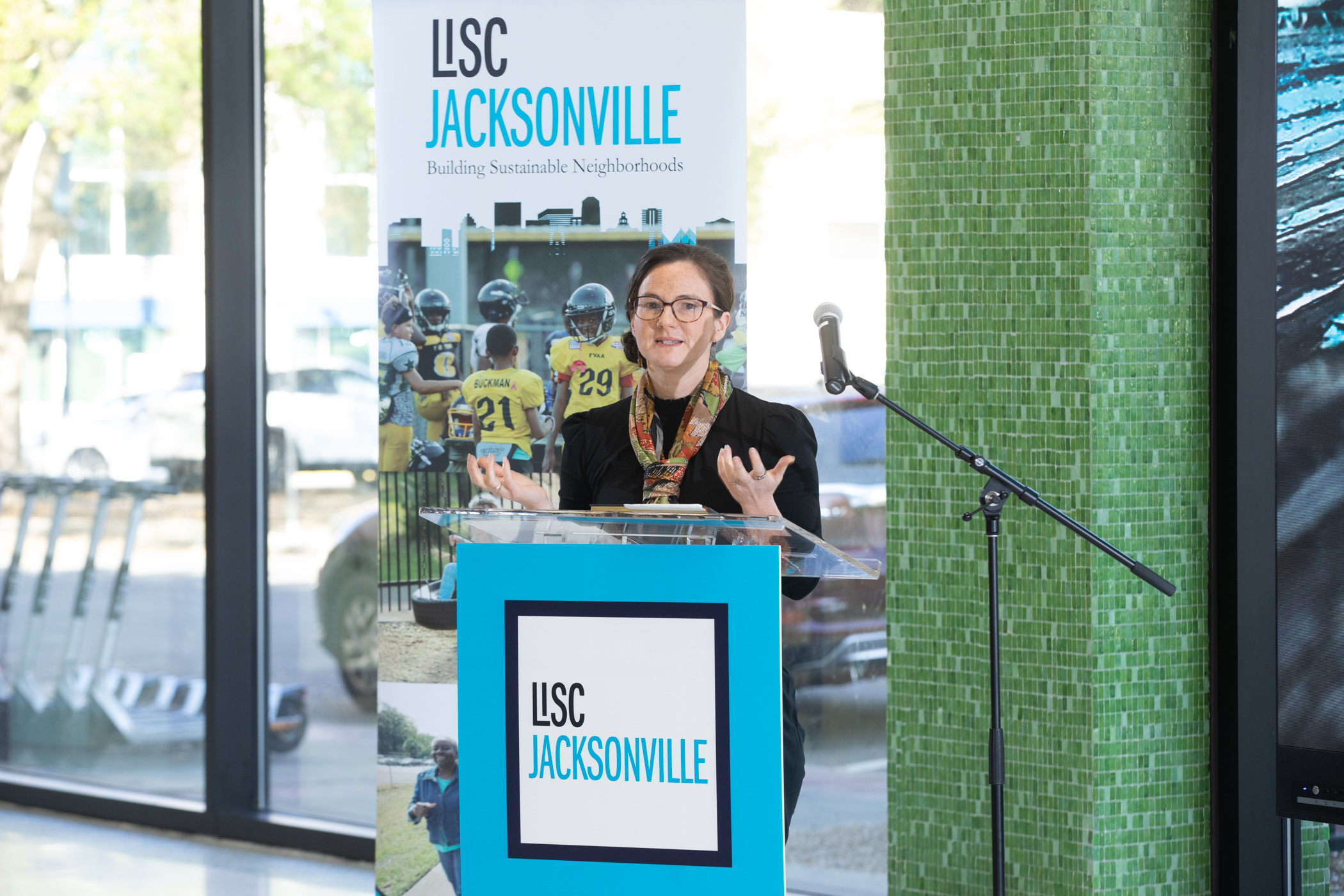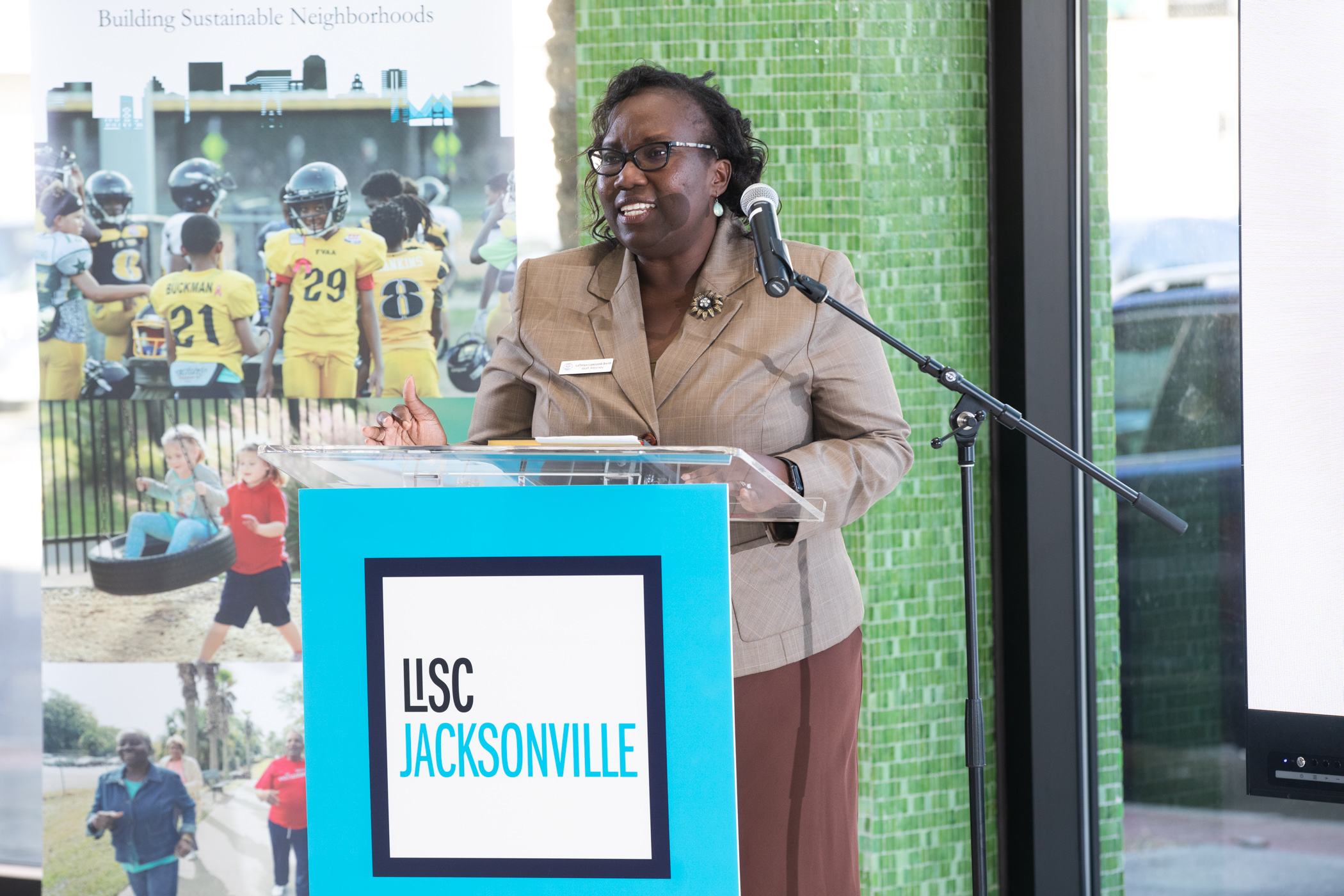Helping Local Families Stay in Their Homes by ‘Unlocking’ Heirs’ Property
In the Duval County zip code of 32209, one would likely find, on any given street, one or two properties that have been sold at auction due to lack of clear title, nonpayment of property taxes, or other reasons, according to the Central Fairfax Community Association.
“Specifically, there are two homes that recently sold for $8,000, yet they had a taxable value of $150,000 each, and likely a market value even higher,” said Victor Coleman, president of the Central Fairfax Community Association. “The families who owned these properties never had the opportunity to secure a clear title to the property they rightfully inherited, and due to that, they were sold out from underneath of them.”
Now, those families’ version of the American Dream – using homeownership to build generational wealth or leverage home equity to pursue other wealth-building opportunities – has slipped away from them, and it may never be recovered.
To address this pervasive community issue, with the guidance and support of LISC Jacksonville and others, the Central Fairfax Community Association (alongside many other community development corporations (CDCs) across Jacksonville) is proactively engaging local residents in this issue of heirs’ property. The goal is to help these individuals stake legal claim to their property and prevent this wealth-deteriorating phenomenon from impacting others.

During an event recently hosted by LISC Jacksonville about heirs’ property, North Riverside CDC’s vice president Henry Scott shared similar sentiments. “Our neighborhood has become a target for gentrification in recent years with outside developers coming in, building new homes, and subsequently pushing people out of the neighborhood they have called home, in many cases for generations.”
In response, North Riverside CDC has – in partnership with LISC Jacksonville, Three Rivers Legal Services, and others – been conducting workshops with residents to provide them with information and resources about probate, wills, and estate planning, and how to obtain a clear title to properties they inherit without a will or estate plan. For many residents, including Scott, this issue is highly personal: “I am also a recipient of heirs’ property,” said Scott, whose mother recently passed away, thus passing her home to him, but without a will directly dictating as such, so the property is in ‘legal limbo’ until resolved. “Our residents, we want to stay in our homes, myself included – we want the choice to be able to remain in our community.”
The issue of heirs’ property is having significant impacts on people not only in Duval County, but across the nation. However, in Duval County alone, there is approximately $2.5 billion in housing market value that is stuck in legal limbo because of heirs’ property.
The Federal Home Loan Bank of Atlanta (FHLBank Atlanta), which entered this field of work in 2021, defines heirs’ property as occurring, “when a real property owner dies without a will that designates a successor owner, or without a recorded deed.” It also occurs when property is left to multiple beneficiaries, resulting in a fractured or tangled title that is unmarketable and, if left unresolved, prevents the ability to sell, collateralize, improve, or otherwise transfer the property. Heirs’ property is a barrier to the accumulation of generational wealth, leads to neighborhood blight, and is a pervasive issue that disproportionately impacts racial and ethnic minority, low-wealth, and distressed urban and rural communities.
For the past two years, LISC Jacksonville and its partners have been on the forefront of addressing this issue. It started with first identifying the prevalence of this issue by conducting research in partnership with the University of Florida and Auburn University.
 “We have been mostly focused on rural properties, yet urban areas have a higher market value, as do coastal areas, and Duval County has both,” said Ryan Thomson, a researcher at Auburn University who has dedicated significant time to researching this issue across the southeast. “There is more than $41 billion in ‘trapped’ property across 11 states – just below one million properties – yet we know there are more. Due to its urban setting, Duval County always breaks my models, it is the outlier of outliers, yet what that really means is that Duval County has the opportunity to develop a practical intervention model that other urban communities can follow. And that is precisely what LISC is doing.”
“We have been mostly focused on rural properties, yet urban areas have a higher market value, as do coastal areas, and Duval County has both,” said Ryan Thomson, a researcher at Auburn University who has dedicated significant time to researching this issue across the southeast. “There is more than $41 billion in ‘trapped’ property across 11 states – just below one million properties – yet we know there are more. Due to its urban setting, Duval County always breaks my models, it is the outlier of outliers, yet what that really means is that Duval County has the opportunity to develop a practical intervention model that other urban communities can follow. And that is precisely what LISC is doing.”
LISC Jacksonville has taken a grassroots approach to addressing heirs’ property in Duval County by convening community-based organizations to build relationships with residents and provide a framework of support for heirs’ property owners. “Establishing trust with the people we are working to support is essential to the success of this initiative,” said Kristopher Smith, community development program officer for LISC Jacksonville. “The issue of heirs’ property affects people from birth to death. Heir’s property leads to housing insecurity, which is proven to decrease child economic mobility and creates more trauma in the home. The learning loss associated with housing insecurity can contribute to a lessening of life-long earnings. Heirs’ property further compounds the effects of other financial and economic challenges, which is exactly why we got involved in this work.”
Through its partnerships, LISC Jacksonville’s work on heirs’ property follows three main areas:
- Find. Finding or identifying the homes that are heirs’ property is the first step, which requires having ample data and ‘boots on the ground’ to confirm the data.
- Preserve. Preserving the homes identified requires legal and housing resources and support.
- Support. Once preserved, the focus turns to supporting and educating these households on how to avert potential future home loss. The bottom line is to help ‘keep their home in the family’ and enable them to build generational wealth.
Alongside probate litigation, community education is essential to the success of this work, as it plays a key role in prevention and empowering communities to be more proactive in addressing this. As more people are educated about this issue, those same people tell others, and awareness grows. “We believe if we can reach 15% of likely heirs’ property households, it will trigger a natural spread of awareness and fuel progress of this work,” added Smith.
 “LISC Jacksonville has done an excellent job of showing how this work can and should be community-led and how it interfaces with networks of existing resources. That bridgework can be difficult to do, but they are working hard to do that very well,” said Sarah Stein, senior adviser in Community and Economic Development at the Federal Reserve Bank of Atlanta, who has served as an adviser and researcher on this initiative not only in Jacksonville, but also in other communities across the Southeast. “There is exciting energy around further understanding what this looks like in an urban context. Learnings from rural areas still apply, but in looking at Jacksonville, there are implications we don’t think about in rural areas. For example, in Durkeeville, there appears to be a high concentration of heirs’ property, that can impact direct neighbors and the community overall; it becomes a neighborhood issue in a different way than it does in rural areas.”
“LISC Jacksonville has done an excellent job of showing how this work can and should be community-led and how it interfaces with networks of existing resources. That bridgework can be difficult to do, but they are working hard to do that very well,” said Sarah Stein, senior adviser in Community and Economic Development at the Federal Reserve Bank of Atlanta, who has served as an adviser and researcher on this initiative not only in Jacksonville, but also in other communities across the Southeast. “There is exciting energy around further understanding what this looks like in an urban context. Learnings from rural areas still apply, but in looking at Jacksonville, there are implications we don’t think about in rural areas. For example, in Durkeeville, there appears to be a high concentration of heirs’ property, that can impact direct neighbors and the community overall; it becomes a neighborhood issue in a different way than it does in rural areas.”
“When you pair the research with strong community buy-in and partnerships, that’s really powerful,” added Stein. “These partnerships and the bridging of the personal stories and narratives of those personally impacted, it tells us more of what we’re really seeing. With LISC Jacksonville, it’s about isolating economic impacts. That’s important to capture, but what’s more important is to connect those economic impacts to the lives that they touch and the sense of possibility those people and communities experience.”
 LISC Jacksonville is continuing to build upon this important work alongside its partners, including Three Rivers Legal Services, which has been conducting the legal work necessary to correct heirs’ property. “Probate litigation and community education are essential to our success, the latter of which is missing from other programs we have seen,” said LaTonya Lipscomb Smith, staff attorney with Three Rivers Legal Services. “It’s not enough to just help with probate; we need to educate people. We host workshops, encourage people to come multiple times and to bring friends and neighbors to broaden the reach of awareness and education. People need to understand how they can proactively fix this issue before it could become too late, and their property is lost.”
LISC Jacksonville is continuing to build upon this important work alongside its partners, including Three Rivers Legal Services, which has been conducting the legal work necessary to correct heirs’ property. “Probate litigation and community education are essential to our success, the latter of which is missing from other programs we have seen,” said LaTonya Lipscomb Smith, staff attorney with Three Rivers Legal Services. “It’s not enough to just help with probate; we need to educate people. We host workshops, encourage people to come multiple times and to bring friends and neighbors to broaden the reach of awareness and education. People need to understand how they can proactively fix this issue before it could become too late, and their property is lost.”
To date, LISC Jacksonville and its partners have closed 55 cases of heirs’ property, protecting more than $3.7 million in housing market value. Conducting this work has required significant financial investment, and funders including JPMorgan Chase & Co., United Way of Northeast Florida, Wells Fargo, the Hearst Foundations, Truist, FHLBank Atlanta, U.S. Dept. of Housing and Urban Development, and the City of Jacksonville have all been essential in helping bring this work to life.
“While the statistics and financial impacts are important, what we remain grounded in is that we’re researching and protecting people’s homes,” added LISC Jacksonville’s Kristopher Smith. “We continually keep these families’ histories, stories, and situations at the center of this work, because ultimately, it’s about them and helping them build a stronger, more secure future.”